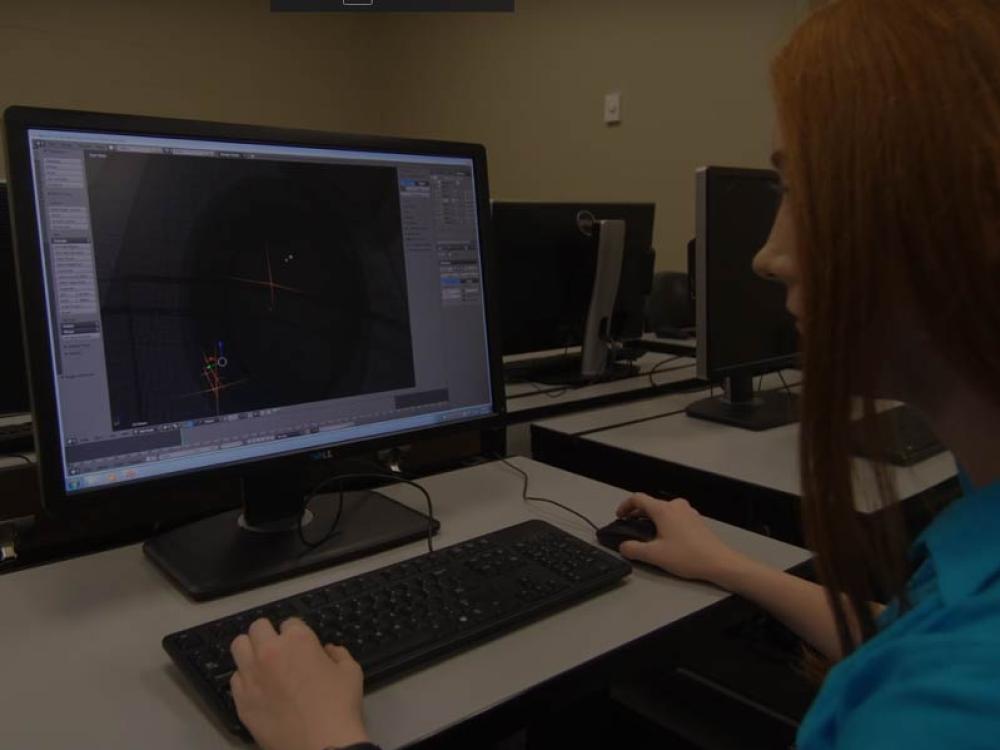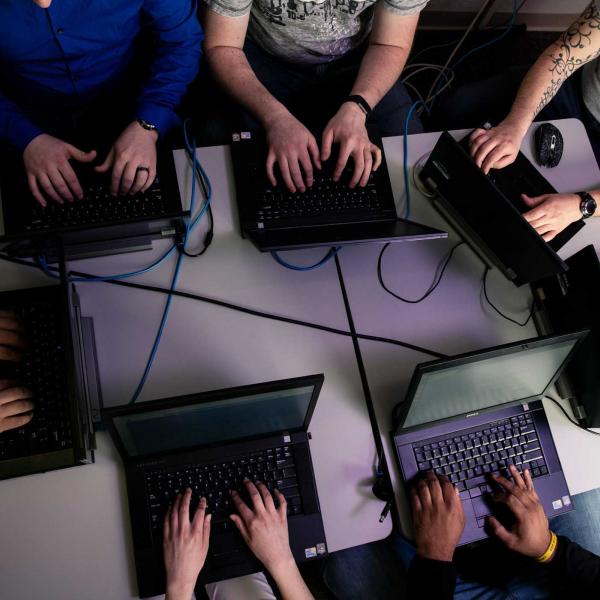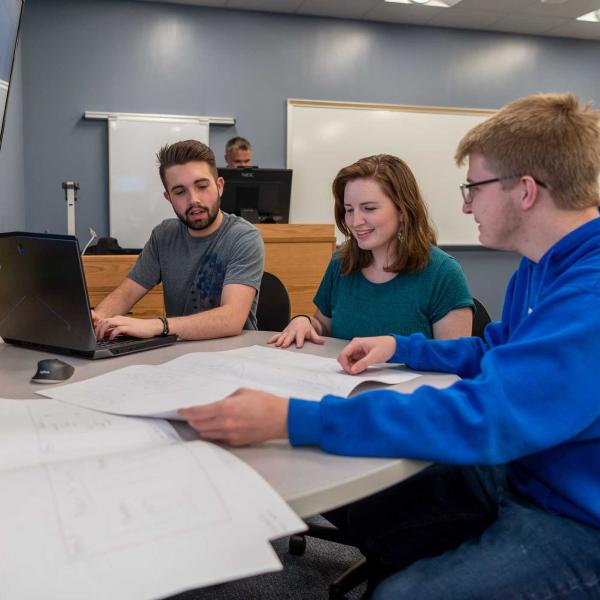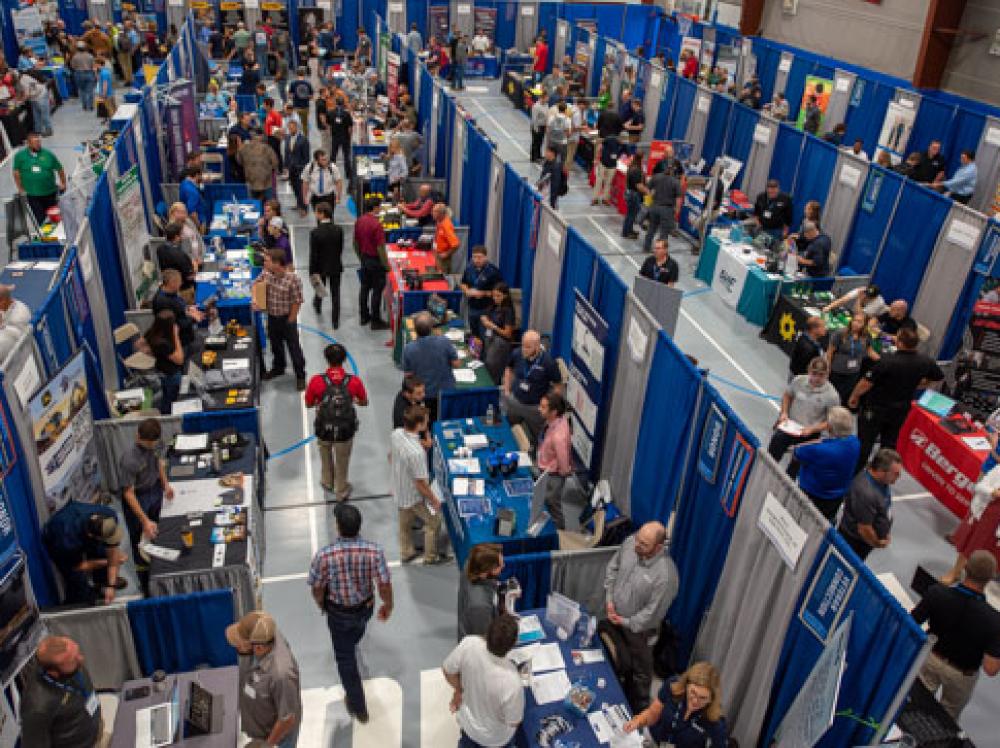Network Administration & Engineering Technology
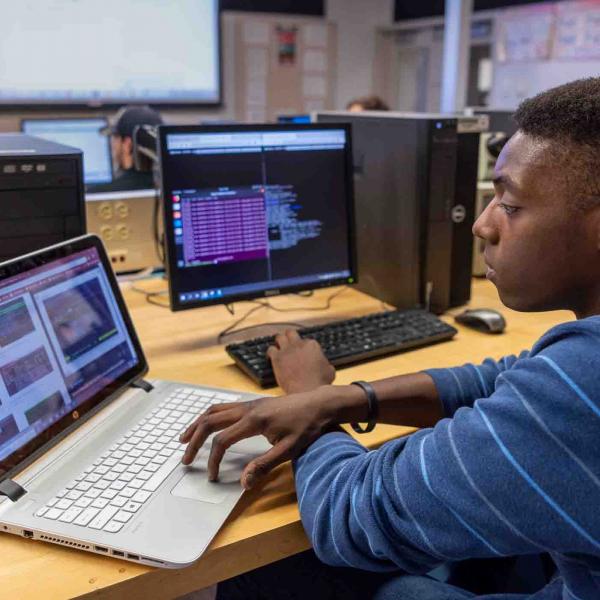
About this program
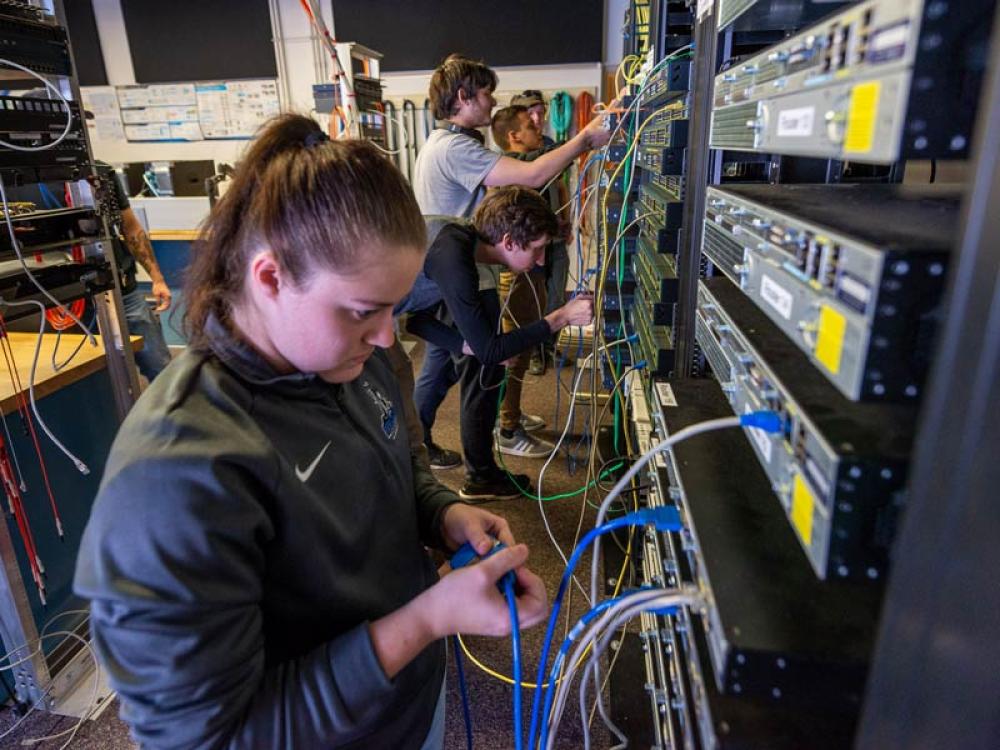
Careers
- Network architects or engineers
- Information systems administrators
- Network administrators or analysts
Courses
At Penn College, we believe your educational experience should go beyond specialized skills. Real-world ready means taking a broader approach that builds communication skills, inspires collaboration, and encourages exploration of arts, history, and science.
Specialization requires in-depth knowledge and high-level proficiency. Students learn and apply major-specific concepts, skills, and methods.
- Introduction to Programming (CIT160)
- Networking I (EET145)
- Introduction to Database (CIT180)
- Programming II (CIT260)
- Networking II (EET247)
- Fundamentals of Information Security (CIT230)
- Introduction to UNIX/Linux (CIT240)
- Systems Administration (CIT273)
- Principles of Management (MGT115)
- Systems Programming (CIT241)
- Directed Networking Elective (BNE)
- System Analysis I (CIT246)
- Server Administration (CIT355)
- Network Administration II: Real-time Services (CIT371)
- Network Defense (IAS312)
- Network Simulation (CIT372)
- Virtualization, Storage & Cloud Computing (CIT347)
- Wireless & Mobile Computing (CIT310)
- Multi-Platform Architecture (CIT448)
- Management of Organizational Behavior (MGT410)
- Project Management in IT (CIT485)
- Legal Issues in Information Security Management (LAS350)
- Network Design & Management (CIT476)
- Advanced Topics in Networking (CIT449)
Perspectives are points of view, offering a variety of ways of understanding, interacting, and influencing the world. Students identify, explain, and utilize the approaches used by academics and professionals to study, analyze, or understand problems, and offer solutions.
Foundations are the practical, intellectual, and social skills: communication, collaboration, critical and ethical thinking, quantitative thinking, and technological literacy that are crucial to every student at every stage of education and at every stage of life.
- Information, Technology & Society (CSC124)
- English Composition I (ENL111)
- College Algebra & Trigonometry I (MTH181)
- Technical & Professional Communication (ENL201)
- College Algebra & Trigonometry II (MTH183)
- Fundamentals of Speech (SPC101)
- Statistics for STEM Fields with Computer Applications (MTH161)
Next steps...
You're on your way to becoming a tomorrow maker.
What's the difference between Information Technology and Computer Science?
Computer science is more theoretical, with increased math requirements. Many tend to focus on programming or cutting-edge computing, like artificial intelligence and augmented reality.
IT is focused on supporting the user. It is more people-focused, making the tools of computing accessible to fit the needs of people and organizations, as well as creating computing tools and systems to meet the user's needs.
Virtual Tour
Information Technology
Get a glimpse inside the labs where future IT professionals learn how to install, configure, and maintain computing systems. Meet Dr. Sandra Gorka, Associate Professor of Computer Science. And check out everything from gaming and simulation spaces to the hands-on labs decided to cyber security, networking, database management, and Linux systems.
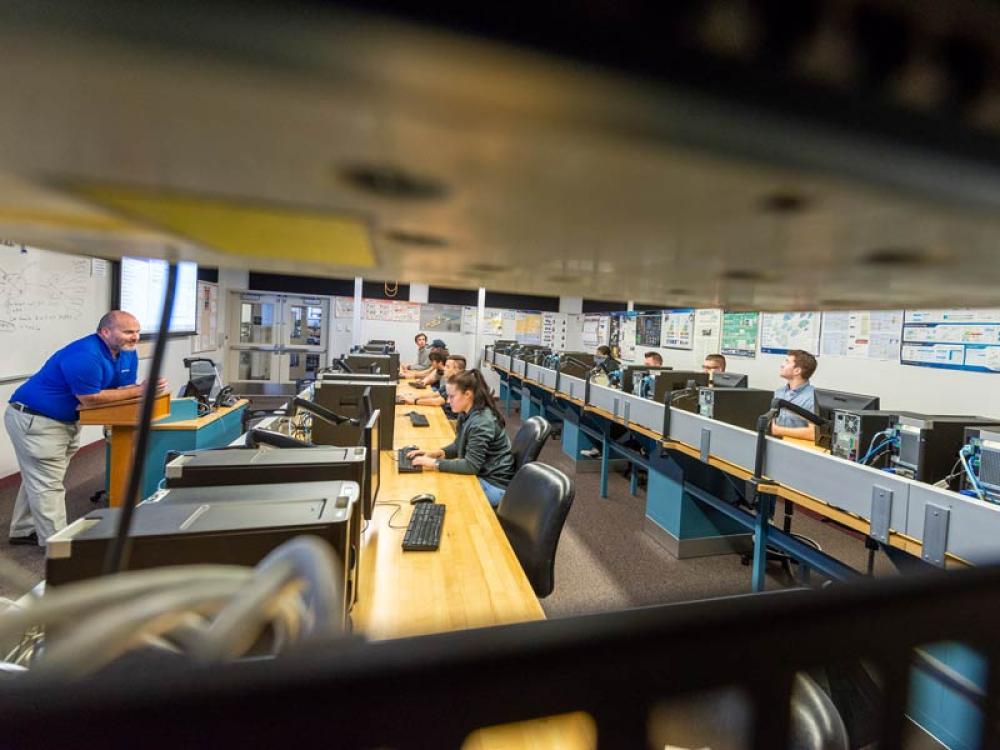
Facilities
IT Labs
Apply theory to the real thing in our specialized IT labs. Here, you’ll have access to both physical and virtual labs designed for networking, IT security, operating systems, and gaming. Apply the principles of ethical hacking, intrusion detection, and digital forensics in both physical and virtual environments. Labs also allow students to create 3D models, investigate hypervisors, build networks from bare metal to full production, and simulate a host of applications and network configurations.
Featured Video
Women In STEM
What does it take to succeed in a STEM career? Curiosity. Critical thinking. A can-do spirit. And an educational experience that meets your passion head-on. Here, you’ll meet a community of innovators. Future pioneers who are learning by doing. Breathing new life into old concepts. Testing theories. And breaking barriers. Because the more you explore, the more you grow. And the bigger difference you can make.
Maker Profiles
Tour Schedule
Seeing is believing.
Think Penn College might be a good fit for you? Make plans to visit and discover what hands-on learning is all about.
Internship
Your knowledge in practice
Internships are key for career preparation. Apply your know-how in the workplace and learn about the industry first-hand.

Related Programs
Follow your passion
Student Life
Lead and put your skills to the test

Association for Computing Machinery (ACM)
Our student chapter of ACM serves as the college's "computer club" as well as a common ground for all those who wish to supplement their education with topics prevalent in the world of computing technology today.
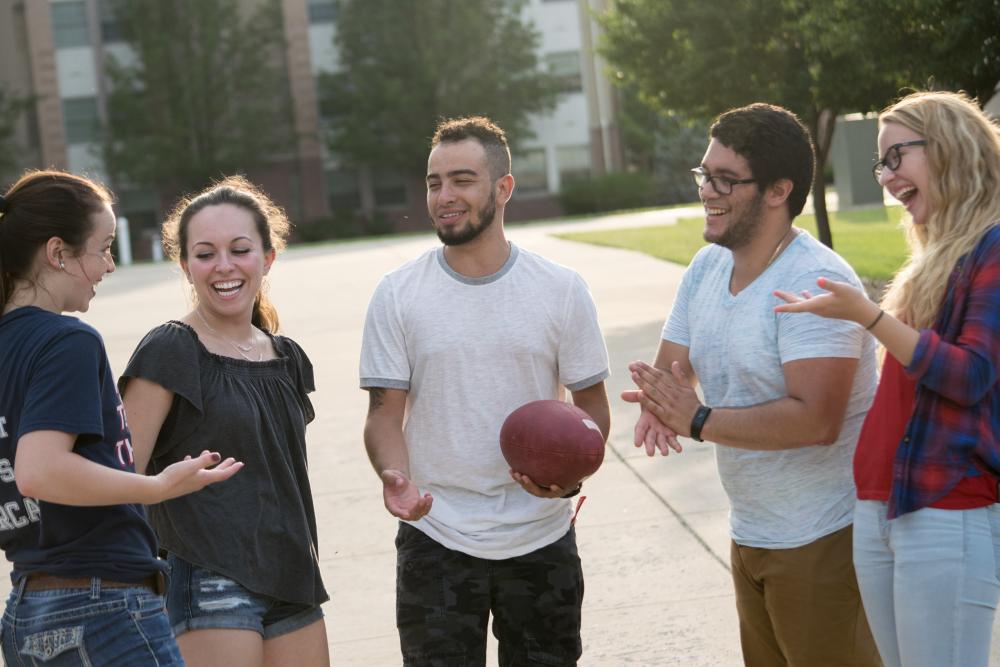
Student Organizations at Penn College
Your college experience is about more than the classroom. Join one of 65+ clubs and organizations, or create your own.
Penn College News
Wednesday, April 16, 2025
Nine Penn College students inducted into IT honor society
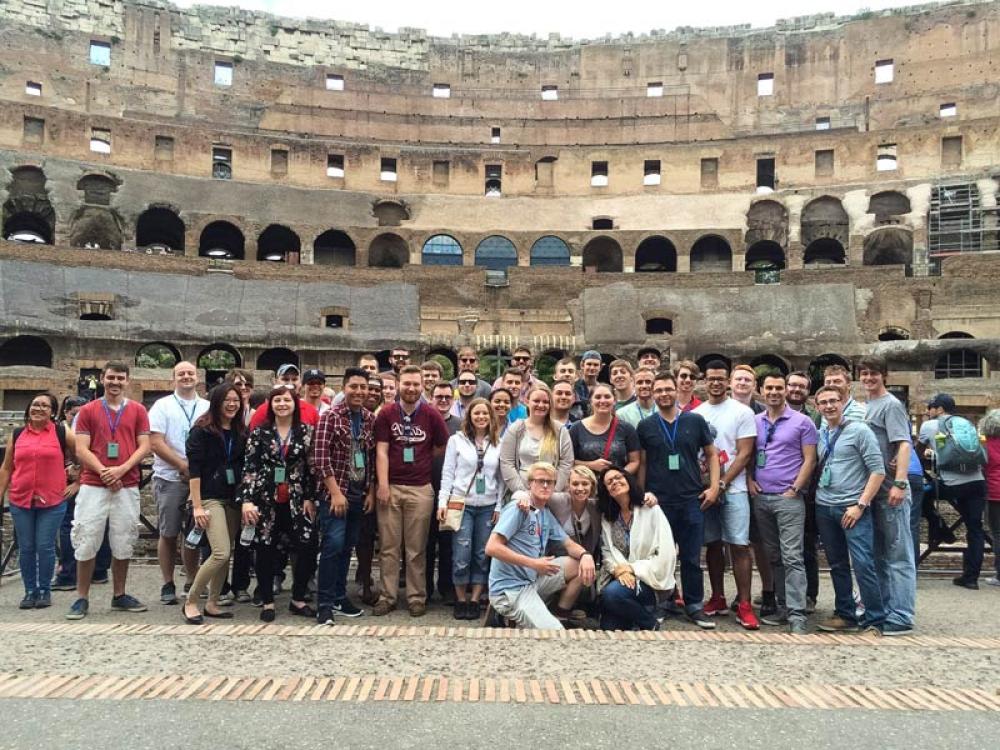
Study Abroad
Gain global experience
See the world via Williamsport. Take your education abroad and get hands-on experience learning about your industry on a global scale.
Our Leadership
Faculty Story
Lisa Bock, associate professor of computer information technology, not only teaches students, but has literally written the book for IT professionals.

More Information
Students must complete all required major courses in the Network Administration and Engineering Technology major (those with the alpha-designators CIT, EET, IAS, LAS, and MTH) with a grade of "C" or higher. Additionally, any course approved for use as a Directed Networking Elective must also be completed with a grade of "C" or higher.
All transfer credits will be evaluated on a course-by-course basis to determine where they would fit into the curriculum sequence. Students must have earned a grade of 'C' or better in courses transferred into the major.
A laptop/notebook computer is required for enrollment in all Information Technology major courses CIT 160 and higher. Laptop specifications
Uniforms and tools are available for purchase through The College Store and Penn State Computer Store .
Alternative Credit refers to academic credits earned through means other than traditional college course completion, including: credit by exam, articulation, proof of competency gained in high school, work/life experience, and advanced placement.
Visit the Alternative Credit Options page for requirements and procedures and for information on credit through Advanced Placement.
- Mr. James R Ankers, CISSP, CISA, IT Specialist (INFOSEC), United States Navy
- Mr. Daniel J Clarke, '07, Senior Solutions Architect, Arraya Solutions
- Dr. Todd W Griffith, Chief Technology Officer, Discovery Machine Corporation
- Mr. Brandon J Howe, '01, Sr. IT Analyst, Anadarko Petroleum Corp.
- Dr. Karl M Kapp, Assistant Director, Institute for Interactive Technologies, Bloomsburg University
- Dr. Krish Pillai, Ph.D., Assistant Professor, Lycoming College
- Mr. Mark J Watson, '85, Administrative Director, Corporate Information Technology, Susquehanna Health

